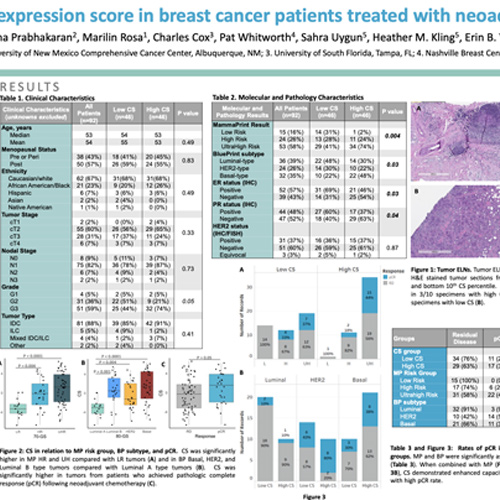PUBLICATION:
ASCO 20
AUTHORS:
Hatem Soliman, Sangeetha Prabhakaran, Marilin Rosa, Charles Cox, Pat Whitworth, Sahra Uygun, Heather M. Kling, Erin B. Yoder, and William Audeh
SUMMARY:
Studies demonstrating the presence of immunoregulatory gene activation1 and tumor- infiltrating lymphocytes in the breast tumor microenvironment suggest the importance of an effective anti-tumor immune response. Chemokines, which act as trafficking signals for immune cells, influence the spatial organization of the host immune response and the formation of organized extranodal lymphoid follicles, also known as ectopic lymph node- like structures (ELNs), in response to invading pathogens, chronic inflammation, and in solid tumors2-4. These structures likely attract T cells and activated B cells in response to tumor antigens. ELNs have been implicated in improved clinical outcomes in several types of cancer, including breast cancer5, and may represent a therapeutic target6 and/or a
7 predictive biomarker for responses to immune checkpoint inhibitors.
Read more: ASCO 2020: Chemokine Signature



